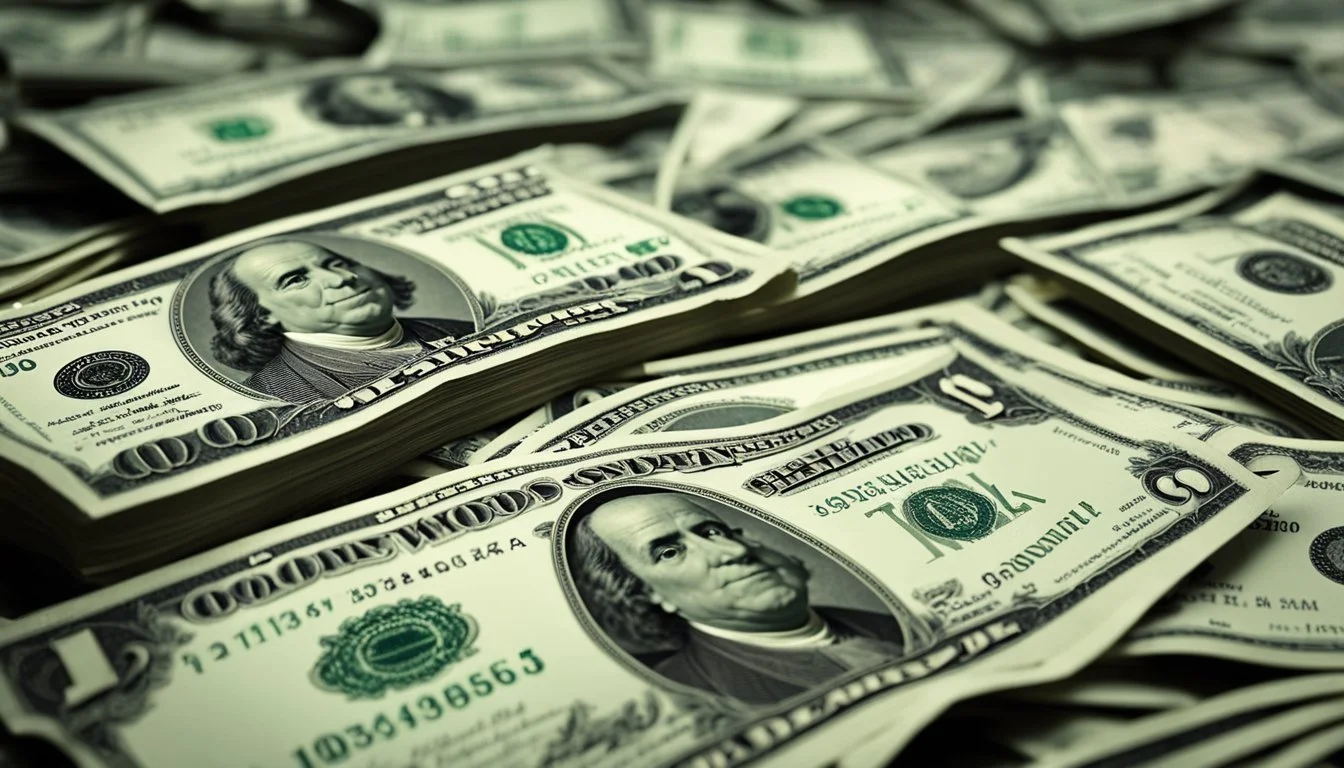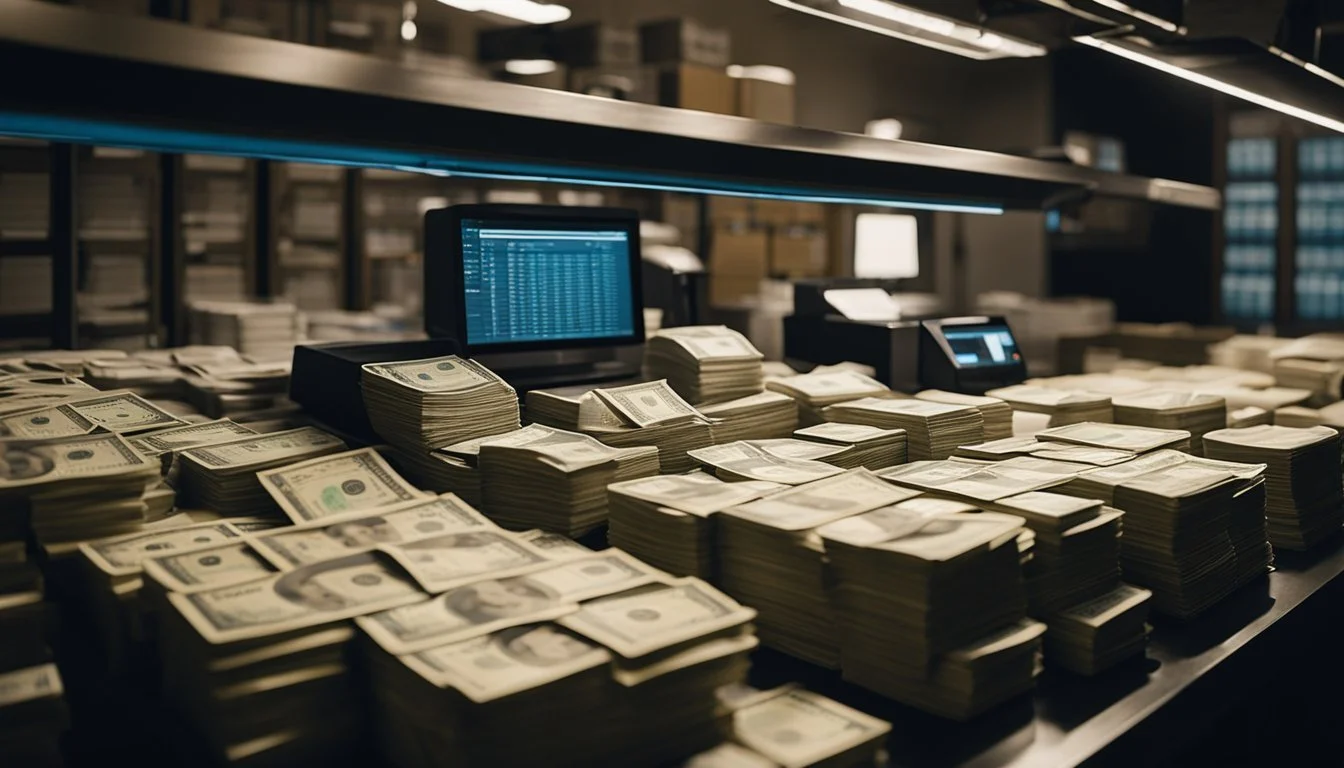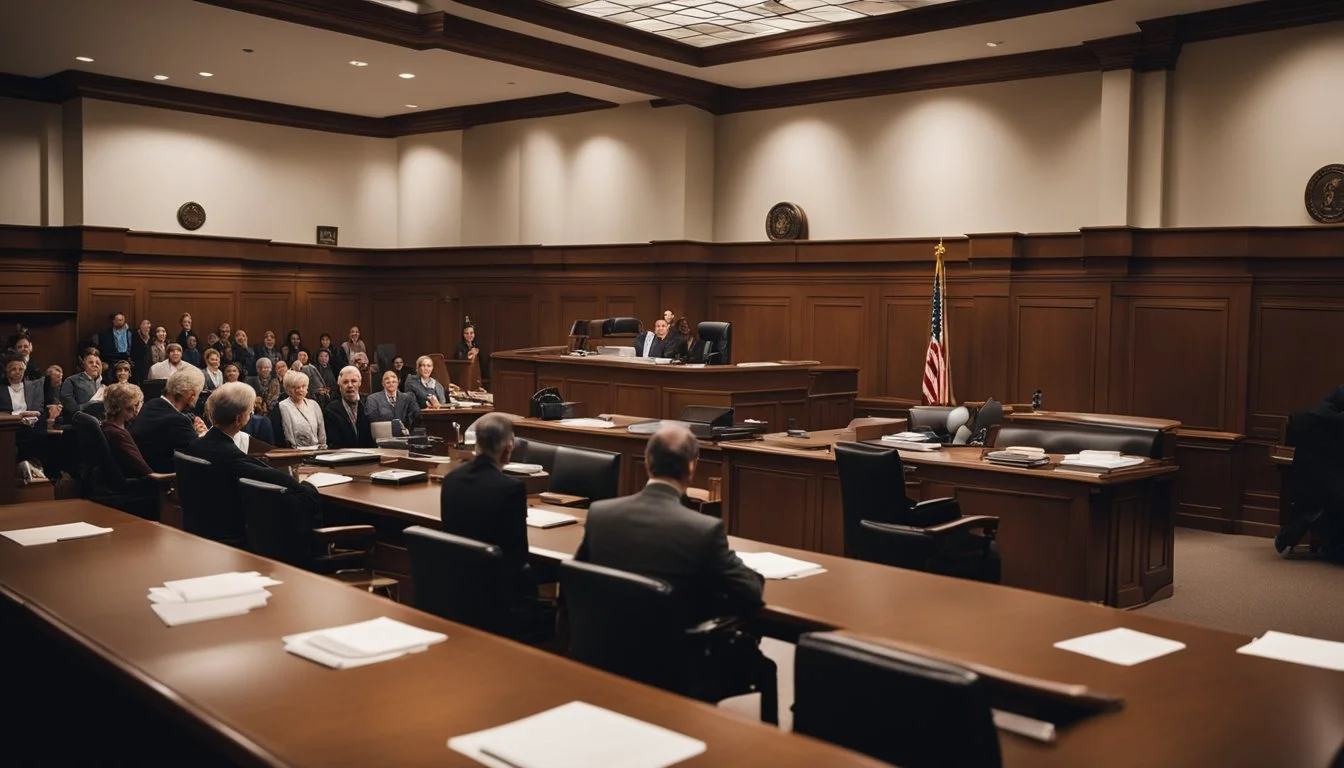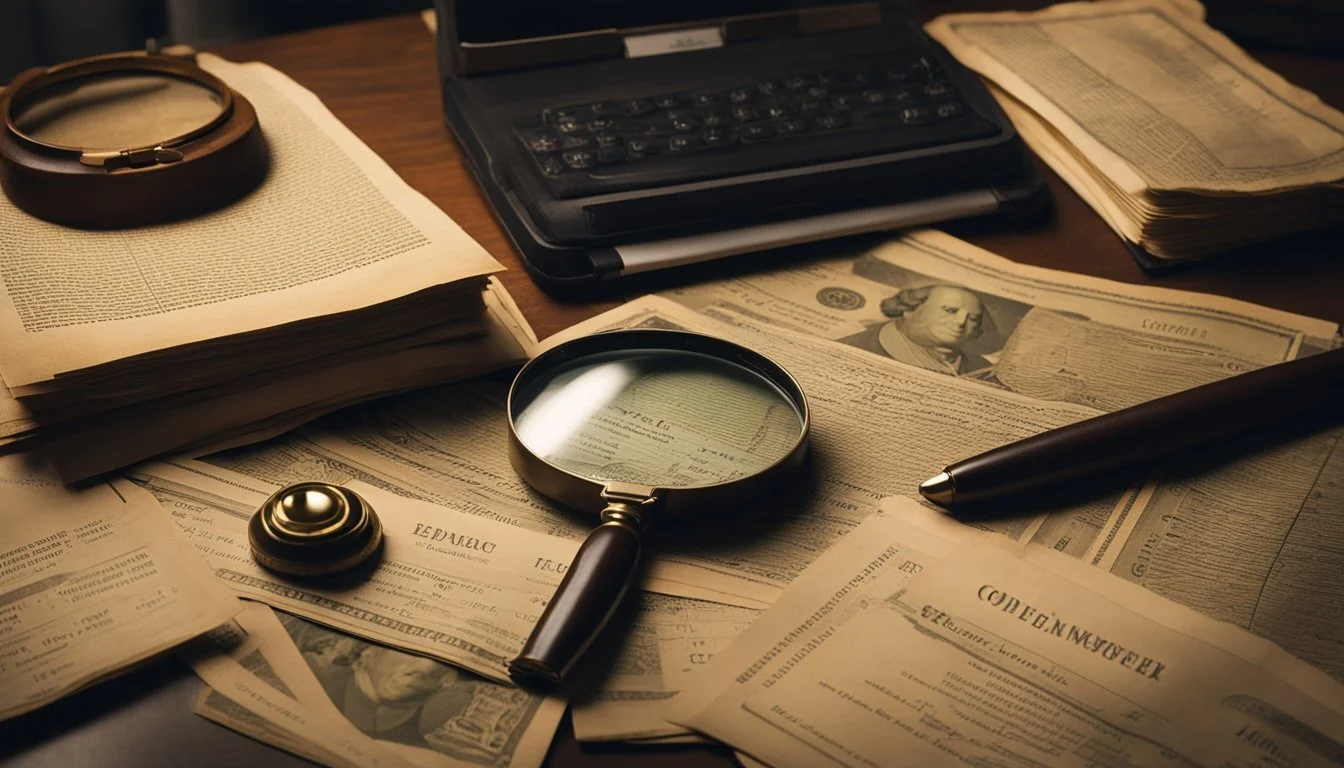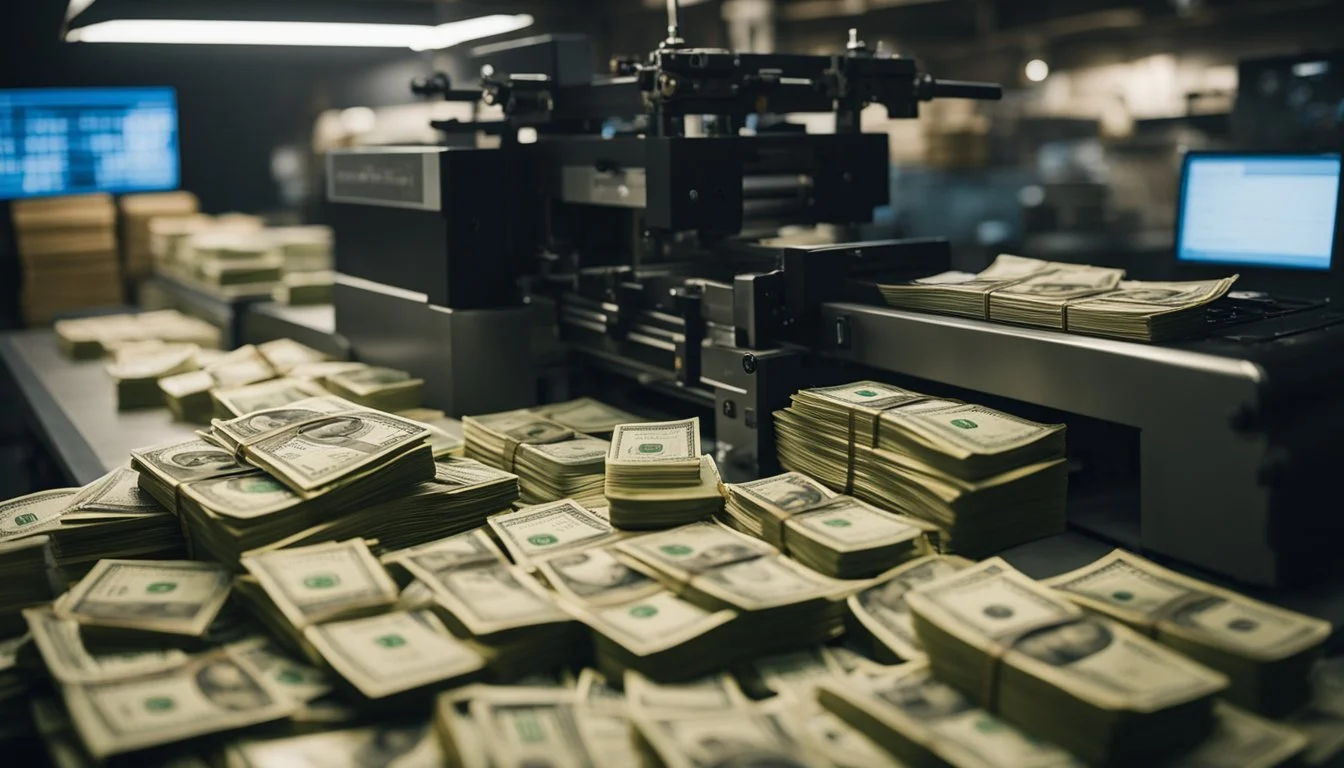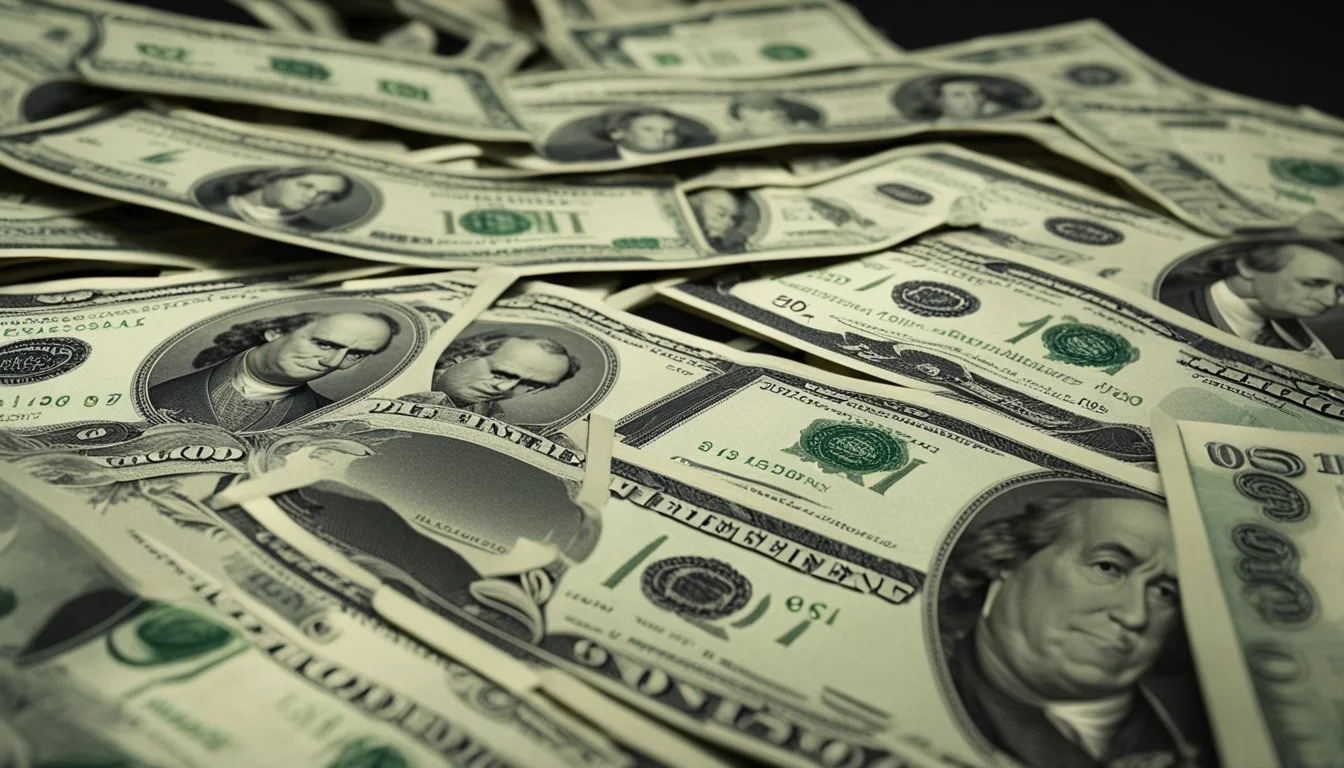8 True Crime Documentaries About Counterfeiting in Rhode Island Uncovering Fraud and Deceit
True crime documentaries offer a gripping look into the darker aspects of society, and counterfeiting is no exception. This article focuses on eight compelling documentaries that delve into the world of counterfeiting specifically in Rhode Island, exposing the intricate operations and the individuals behind them.
With detailed investigations and expert interviews, these documentaries shed light on the sophisticated methods used by counterfeiters and the relentless efforts of law enforcement to bring them to justice. For those fascinated by both financial crimes and the perseverance of those who combat them, these true crime documentaries provide an eye-opening experience.
1) The Counterfeiting Scandal of 1765
In 1765, Rhode Island faced a major counterfeiting crisis that threatened the colonial economy. The scandal involved forged paper money, which circulated widely and undermined public trust in the currency.
While counterfeiting was not new, the scale of this operation was unprecedented. The counterfeiters used sophisticated techniques to produce nearly indistinguishable fake currency.
Authorities struggled to track down those responsible, as the counterfeiters operated in secrecy. The public panicked, leading to financial instability and a lack of confidence in local government.
This scandal highlighted the need for stronger economic regulations and more secure currency. It remains one of the most significant counterfeiting incidents in early American history.
2) Rhode Island's Forgery Kingpin: The Samuel Wardwell Story
Samuel Wardwell is a name often connected with infamous historical events, primarily the Salem Witch Trials. However, another Samuel Wardwell found his notoriety in Rhode Island. Born on April 25, 1755, in Bristol, Rhode Island, Wardwell became known for his illicit activities, notably forgery.
Wardwell's criminal undertakings centered around counterfeiting various forms of currency. He had an extensive network to circulate forged notes, making it difficult for authorities to curb his activities quickly. His operations spanned several years, involving numerous accomplices across Rhode Island.
Arrest and prosecution efforts eventually caught up with Wardwell. His trial and subsequent punishment became a significant event, shedding light on the extent of counterfeiting crimes during that era. His story has been documented in various historical accounts, portraying him as a significant figure in the history of American counterfeiting.
The narrative surrounding Samuel Wardwell provides insights into the world of early American crime, illustrating the challenges faced by law enforcement in dealing with organized criminal activities. His life and actions remain a point of interest for historians and true crime enthusiasts alike.
3) Operation Fakeout: The 1998 Currency Ring
In 1998, federal authorities dismantled a major counterfeiting operation known as "Operation Fakeout." This sophisticated ring was responsible for producing an immense amount of counterfeit currency in Rhode Island.
The operation involved a network of skilled forgers who meticulously recreated $100 bills. They used high-quality printing techniques and advanced machinery, making their fake bills difficult to detect. These counterfeits circulated widely before the ring was uncovered.
Law enforcement efforts included undercover missions and surveillance. Federal agents tracked the distribution of counterfeit money, leading them to the ring's central manufacturing hub. Several arrests were made as a result of these efforts.
"Operation Fakeout" highlighted vulnerabilities in currency security at the time. The success of the forgers illustrated the need for enhanced measures in protecting financial systems against such sophisticated threats.
For more information about counterfeiting in films, you can check movies like "Catch Me If You Can" (2002) starring Leonardo DiCaprio. IMDB link
4) The Trial of Eliza Harwood: A Tale of Deception
Eliza Harwood became a notable figure in Rhode Island's history of counterfeiting during the early 19th century. Arrested in January 1833, she was implicated in a large-scale operation involving the production and distribution of counterfeit currency.
The authorities traced numerous fake banknotes to her, uncovering a network of accomplices.
Her trial was notable not only for the extent of the counterfeiting operation but for the cunning manner in which she evaded capture. Harwood managed to operate under an assumed identity, making it difficult for investigators to track her activities.
The courtroom was packed with onlookers eager to see justice served.
Throughout the proceedings, evidence presented against Harwood was overwhelming. Detailed records and testimonies from her associates painted a clear picture of her involvement. This case emphasized the lengths to which counterfeiters would go to exploit financial systems, creating wide-scale trouble for local banks and businesses.
Although Harwood maintained her plea of innocence, she was ultimately convicted based on the substantial evidence. Her case remains a classic example of counterfeiting challenges faced by the banking industry in Rhode Island during the time. Harwood's trial and subsequent conviction were pivotal in shaping future counterfeit deterrence and legal measures.
5) Breaking Bad in Newport: The Counterfeit Operation
Newport, Rhode Island, known for its seaside mansions and summer festivals, once harbored a lesser-known, high-stakes criminal endeavor—counterfeiting.
In the early 2000s, a sophisticated counterfeit operation came to light involving local residents and international accomplices. They managed to print high-quality fake U.S. currency and distribute it across New England.
The ringleader, a Newport native, used advanced printing techniques and forged documents to cover their tracks. Local businesses were inadvertently drawn into the scheme as counterfeit bills circulated.
Authorities were tipped off when a suspiciously large volume of fake bills emerged. A joint task force, including the Secret Service, conducted an extensive undercover investigation leading to the discovery of the hidden print shop in a residential garage.
The operation was busted in 2006, resulting in multiple arrests and lengthy prison sentences for those involved. This crackdown highlighted the challenges law enforcement faces in detecting and dismantling counterfeit operations.
To learn more about counterfeit currency and similar cases, visit the Wikipedia page on counterfeit money.
6) The Mystery of the Fake Colonial Currency
In the late 18th century, counterfeiters in Rhode Island gained notoriety by producing fake colonial currency. These forgeries circulated widely, causing economic turmoil and mistrust among the settlers.
The documentary explores how these forgers replicated the intricate designs of the genuine currency. They utilized advanced printing techniques available at the time, tricking even the most cautious merchants and officials.
Central to the investigation is the story of a prominent counterfeiting ring operating out of Rhode Island. The documentary examines their methods, the materials they used, and the eventual crackdown by authorities.
Experts in historical forensics contribute their insights into how these counterfeits were identified. They explore the painstaking process of distinguishing between real and fake currency, which often required a detailed examination of handwritten signatures and paper quality.
Through interviews with historians and archival research, the film paints a vivid picture of the economic and social impact of the counterfeit currency. It uncovers the lengths to which colonial governments went to combat the issue, including enacting stringent laws and severe punishments for those caught counterfeiting.
For more information on "The Mystery of the Fake Colonial Currency" (2023), see the movie database IMDB.
7) Exposing the Counterfeit Coin Conspiracy
"Money Matters: The Counterfeit Coin Conspiracy" (2018) explores the underground world of fake currency production in Rhode Island. This documentary investigates a sophisticated operation responsible for producing and distributing counterfeit coins across the state.
Detailed interviews with law enforcement officers reveal how the counterfeiters managed to evade detection for years. Officials explain the meticulous techniques used, from acquiring high-quality metals to replicating precise designs of genuine coins.
Several firsthand accounts from informants and former operatives provide an inside look at the conspiracy. These narratives shed light on the network's hierarchy and strategies, emphasizing the complexity and reach of the operation.
Experts in forensics and economics discuss the broader implications of the counterfeit coin conspiracy on Rhode Island's economy. They highlight the challenges faced by businesses and consumers while stressing the importance of vigilance and advanced detection methods to combat such fraudulent activities.
For more information, visit IMDB.
8) The Secret Printing Press in Providence
In the early 19th century, Providence, Rhode Island, became host to a clandestine operation that would shock the local community. A group of skilled counterfeiters established a covert printing press in the heart of the city. They produced high-quality counterfeit bills that circulated widely, deceiving businesses and individuals alike.
This operation remained undetected for several years. The counterfeiters employed advanced printing techniques and materials. Their craftsmanship made it almost impossible for the naked eye to distinguish their fake bills from real currency. Such was the quality of their work that it drew minimal suspicion.
The press was hidden in a discreet location, rumored to be a basement beneath a commercial property. The secrecy of their location contributed significantly to the longevity of their operations. Even when occasional rumors about fake currency surfaced, the culprits managed to elude capture.
The eventual discovery of the press came as a result of meticulous detective work. Law enforcement officials, noticing patterns in the distribution of the bills, narrowed down their search to specific areas. A tip-off from an informant finally led to a raid and the arrest of the counterfeiters.
For more on similar stories, refer to the "Cocaine Cowboys: The Kings of Miami" documentary (2021). IMDb.
Overview of Counterfeiting in Rhode Island
Counterfeiting has a long and notable history in Rhode Island, particularly during its Colonial period. The region saw various types of counterfeiting activities, from fake currency to other forms of fraudulent schemes.
History of Counterfeiting in Rhode Island
Counterfeiting in Rhode Island dates back to the early 18th century. The infamous Greenman family and the Lippincott couple were key figures in this history. They were first jailed in 1713 and later tried in 1718 for passing counterfeit bills across Rhode Island, Massachusetts, and Connecticut.
Counterfeiting activities were not limited to paper currency. Coins and other negotiable instruments were also commonly forged. During the Colonial period, Rhode Island was a hotspot for counterfeiters because its thriving economy made it an attractive target.
Types of Counterfeiting
Paper Currency: The most prevalent type of counterfeiting in Rhode Island was paper currency. Fake bills circulated widely, affecting the local economy and leading to significant legal actions against offenders. Examples include the trials of the Greenman and Lippincott families.
Coins: Though less common than paper currency, counterfeit coins were also a problem. These coins often mimicked the appearance and weight of genuine currency, making them difficult to detect without close examination.
Modern Counterfeiting: In more recent times, counterfeiting has evolved. It now includes high-quality forgery of products, documents, and even digital currencies. Advanced technology has made it easier for counterfeiters to produce convincing fakes, requiring more sophisticated detection methods.
The persistence of counterfeiting highlights the ongoing challenges faced by law enforcement and regulatory bodies in maintaining economic integrity. Law enforcement efforts continue to adapt to the evolving nature of these financial crimes.
Law Enforcement and Legal Measures
Rhode Island has implemented rigorous measures for combating counterfeiting, balancing between notable legal cases and strategic law enforcement initiatives. Both aspects highlight the state's proactive approach in addressing and mitigating the threat of counterfeit goods.
Key Legal Cases
Several high-profile cases have underscored Rhode Island's commitment to countering counterfeit operations. One significant case involved a major raid in Providence, where authorities uncovered a substantial operation producing fake luxury goods. The ensuing court proceedings resulted in significant sentences for the perpetrators, setting a precedent for future legal actions.
In another notable case, a group of individuals was prosecuted for distributing counterfeit electronics throughout New England. The court's stringent penalties reflected the severity of the crime, reaffirming Rhode Island’s zero-tolerance policy toward counterfeit activities. These cases collectively demonstrate the legal system's effectiveness in deterring counterfeit operations through severe consequences and meticulous judicial processes.
Law Enforcement Strategies
Rhode Island’s law enforcement agencies employ a multi-faceted approach to combat counterfeiting. A dedicated task force focuses on identifying and dismantling counterfeit networks. This includes collaboration with federal agencies such as the FBI and Interpol to enhance the reach and impact of their operations.
Innovative technology plays a crucial role in these efforts. Tools such as advanced surveillance systems and digital tracking mechanisms aid in the early detection and interception of counterfeit goods. Furthermore, regular training programs ensure that officers remain adept at recognizing and responding to the evolving tactics used by counterfeiters. These strategies are crucial in maintaining the integrity of Rhode Island’s marketplace and protecting its consumers.
Impact of Counterfeiting on Local Communities
Counterfeiting in Rhode Island has both economic and social consequences that significantly affect local communities. These effects range from lost revenue and job opportunities to increased crime rates and public health concerns.
Economic Consequences
Counterfeiting impacts the economy by diverting funds away from legitimate businesses. When consumers purchase counterfeit goods, local businesses lose revenue which can lead to job losses. The Rhode Island economy suffers as investments in innovation and quality control diminish.
Law enforcement agencies must allocate resources to combat this non-traditional crime, which increases operational costs. Money spent on anti-counterfeiting measures could otherwise be invested in community development. Furthermore, counterfeit goods often fail to meet safety standards, causing additional expenses for consumers who need to replace defective items.
Social Implications
The presence of counterfeit goods can undermine trust in local marketplaces. Consumers may question the authenticity of products available, leading to decreased consumer confidence. This hesitation can harm local businesses, which rely on regular patronage to thrive.
Counterfeiting also has serious public safety ramifications. Substandard products may pose health risks, leading to increased healthcare costs and potential injury. The involvement of organized crime in counterfeiting operations can lead to higher crime rates and strain local law enforcement. Socially, counterfeit goods often exploit vulnerable populations, leading to ethical concerns about labor practices and human rights abuses.

